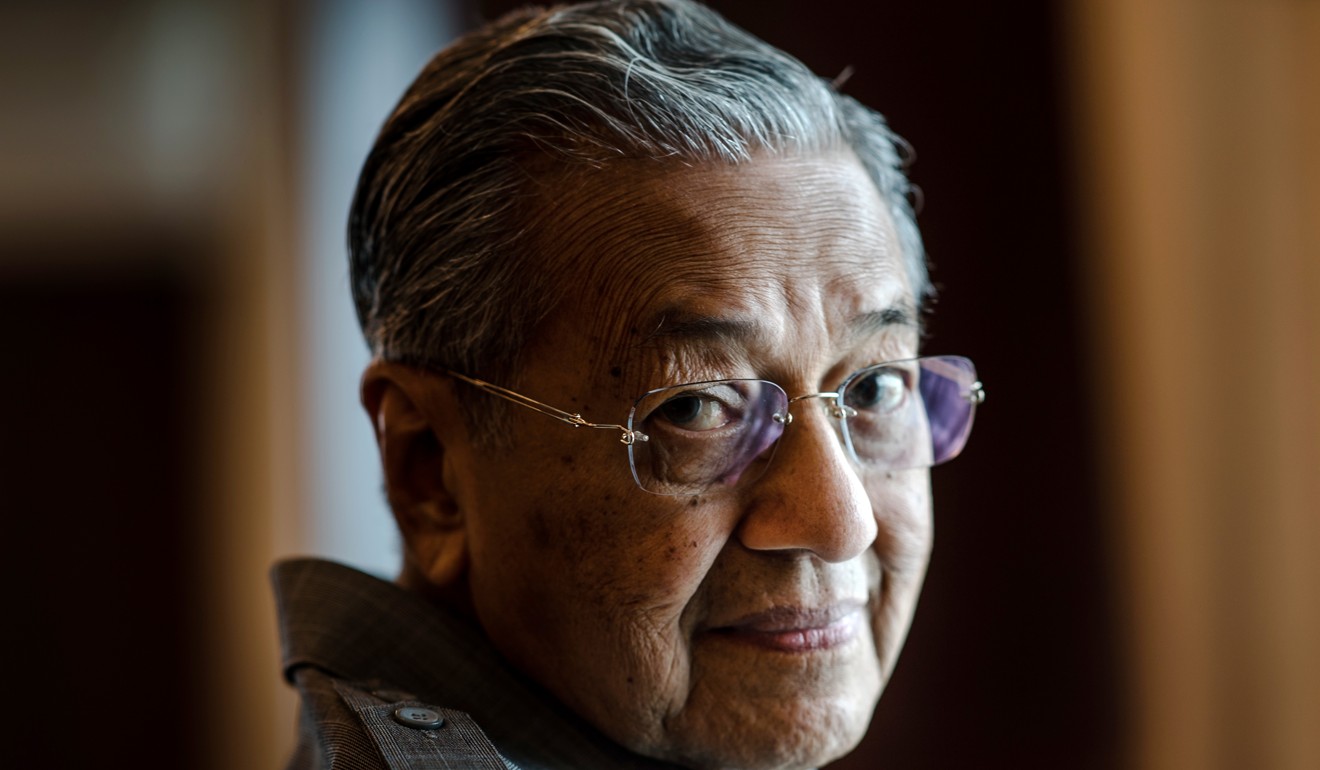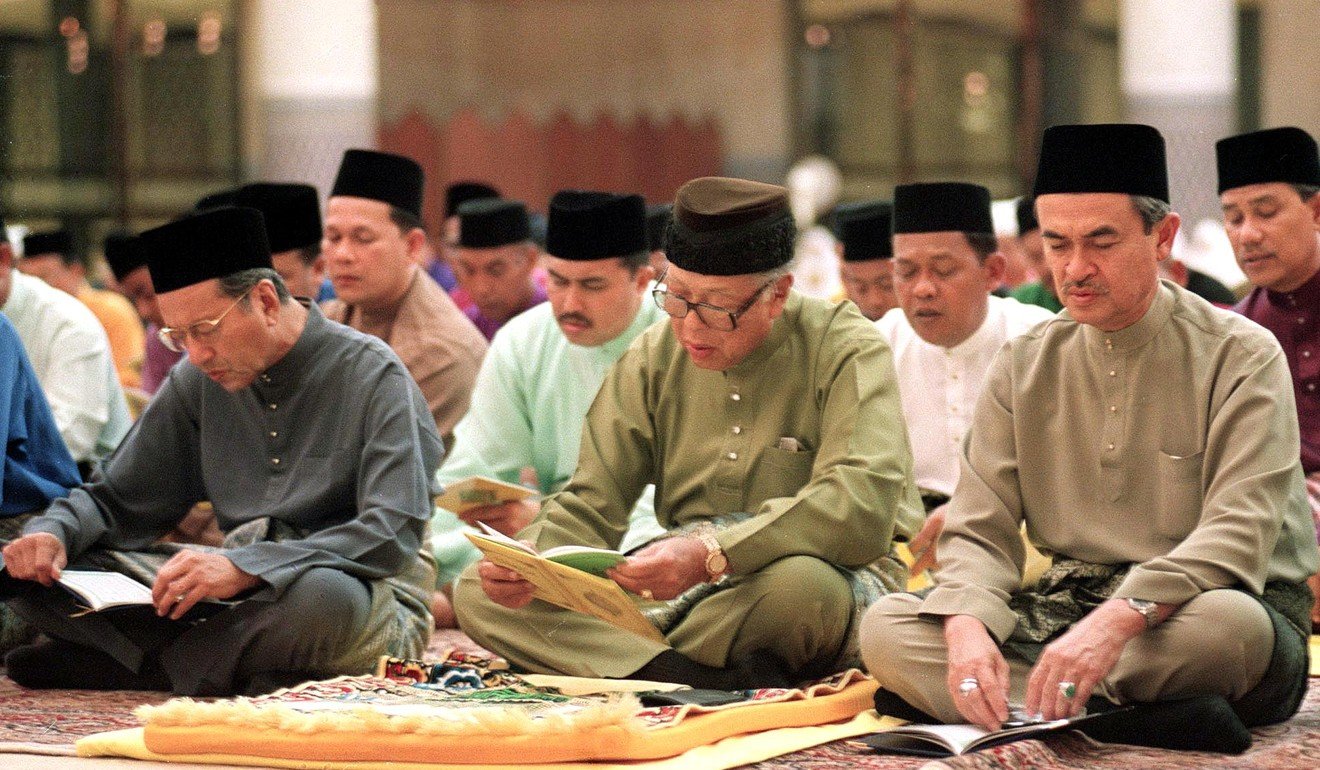
Explainer | Malaysia’s next king: Islam’s defender, political tightrope walker (just ask Mahathir Mohamad)
- Malaysia’s hereditary rulers are about to elect a new king. Here’s what powers he’ll have, how he’s elected and why he might want to be careful around the prime minister
- Pahang’s Sultan Abdullah is the favourite, but Johor’s Sultan Ibrahim Sultan Iskandar is also in with a shot
Malaysia’s nine hereditary Malay rulers will elect their new king, or Yang di Pertuan Agong, tomorrow – just weeks after the previous king, Sultan Muhammad V, stepped down in an unexplained shock resignation following weeks of speculation. It was the first time a Malaysian head of state had abdicated. Experts and insiders believe the new agong will be the Pahang state ruler, Sultan Abdullah, but just why is the monarchy so important to Malaysia?
1. WHAT POWERS DOES THE AGONG HAVE?
The agong serves as Malaysia’s head of state, not dissimilar to the role the queen plays in Britain and its territories. The agong’s role is largely ceremonial as although he has extensive constitutional powers he must exercise these on the advice of the cabinet. The agong must assent to the appointment of individuals for various senior government roles, including that of the prime minister.
What does the king’s dramatic abdication mean for Malaysia?
As head of state, he is also able to issue full royal pardons – as in the case of democracy icon Anwar Ibrahim in 2018, when the former king Sultan Muhammad V wiped his record clean of multiple charges of sodomy and corruption.

What makes the agong a cultural institution and powerful symbol for the people is his responsibility to safeguard Islam in Muslim-majority Malaysia, a key factor behind the continued widespread support for royals among citizens – although increasingly some Malaysians have criticised the use of the colonial-era Sedition Act to quash negative public commentary about the royal institution.
Recently, the Malaysian monarchy has become more vocal about the politics of the day after the landmark 2008 general elections when the then-opposition Pakatan Rakyat won the state of Perak. After three assemblymen defected, the Perak sultan refused to allow the chief minister to dissolve the state assembly, resulting in a constitutional crisis and the state thereafter returning to government rule.
The new Sultan of Pahang is in line to be elected Malaysia’s king
2. ‘ELECTED MONARCHY’: HOW IS THE AGONG SELECTED?
The agong is voted in by a council of his brother rulers, called the Conference of Rulers, which includes four state governors who can attend part of the conference but cannot vote. Each of the nine sultans, who oversee a different state, take turns to be king for five-year stints following a rotational system. Under the constitution, there are only three instances in which the ruler who is next on the rotational list can be denied the position: if the royal is a minor; if the Conference of Rulers by secret ballot resolves that he is unsuitable by reason of infirmity of mind or body or any other cause to exercise the functions of king; or if he declines to take the position. Should this happen, the ballot would then move to the next ruler on the list. As it stands, the Pahang royal family is next up for the throne, followed by Johor and Perak. Historically there has not been any departure from the rotational election list, save for 1984 when Johor and Perak switched turns after Perak’s sultan died a few months before the inauguration.
3. WHAT’S BEHIND PRIME MINISTER MAHATHIR MOHAMAD’S TESTY RELATIONSHIP WITH THE ROYALS?
Mahathir – who also served as prime minister from 1981 to 2003 and is back in the top seat after leading his Pakatan Harapan coalition to victory in 2018 – has had a fractious relationship with the royals following his efforts to clip their wings. Mahathir’s first major run-in with the sultans came in 1983, when he forced them to give up the right to veto new laws by withholding assent through a constitutional amendment.

A decade later, he further curtailed their powers by ending their immunity from prosecution following complaints of errant behaviour. Last year, after the general election that saw former governing coalition Barisan Nasional toppled for the first time in its 61-year rule, there was widespread speculation that the palace had delayed Mahathir’s swearing-in as prime minister. In June, the government and the agong reached an impasse regarding the appointment of ethnic Indian lawyer Tommy Thomas as attorney general, a position normally reserved for a member of the Malay-Muslim majority race – although the constitution does not specify a specific race, gender or religious requirement for the role. The agong consented to the appointment after two weeks. More recently, he took aim at the Johor royal family following land gazette issues, making public remarks about the importance of “rule of law”.
In Malaysia’s Game of Thrones, who will be king now Muhammad V has abdicated
His clash with the Johor royal family, in particular, has been well-documented and dates back to the 1980s; although Mahathir has emphasised that he is not anti-monarchy. In January, Mahathir met the Johor sultan for the first time since coming back to power in a highly-publicised closed-door powwow.
The common refrain is that Mahathir has had a cordial relationship with the seven agongs he has served alongside. “If the sultan doesn’t like me, it’s all right. I am not asking people to like me, I am just going to stand up for what is right,” he told This Week in Asia in 2017.
4. WHO IS LIKELY TO BE ELECTED ON THURSDAY?
This Thursday, the Conference of Rulers will elect a new agong. Observers believe it is unlikely the rulers will break from tradition and Pahang state’s Sultan Abdullah Sultan Ahmad Shah is expected to take the throne. A well-known sports figure due to his involvement with Fifa and various hockey federations, Sultan Abdullah was the crown prince of Pahang until his father stepped down in early January to allow his ascendance, citing poor health.
However, others believe that it is possible Sultan Ibrahim Sultan Iskandar of Johor may become agong. In 2016, the Johor ruler, who has several business holdings and is a motorcycle aficionado, said that he had passed up the opportunity to be agong out of respect for the rotational system.
He met with Mahathir soon after the abdication of Muhammad V.

